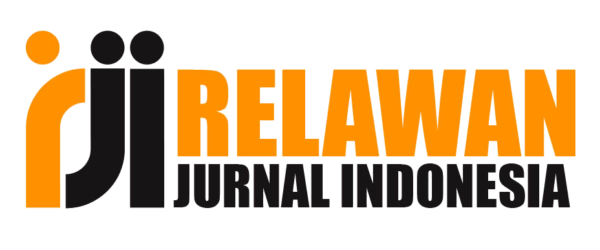Pengaruh penerapan teknik pembelajaran “take-away” terhadap kemampuan kognitif siswa fisika sma pada materi hukum newton
Abstract
Keywords
Full Text:
PDFReferences
Abdullah sani, R. (2013). Inovasi Pembelajaran. Jakarta : PT. BUMI AKSARA
Adams, W. K. dkk. (2006). New instrument for measuring student beliefs about physics and learning physics: The Colorado Learning Attitudes about Science Survey. Boulder, Colorado: Department of Physics, University of Colorado.
Anderson, L. W. dan David R. Krathwohl. (2010). Kerangka Landasan Untuk Pembelajaran, Pengajaran, dan Assesmen Revisi Taksonomi Pendidikan Bloom. Yogyakarta : Pustaka Belajar.
Arifin, Z. (2013). Evaluasi Pembelajaran. Bandung: Rosda.
Arikunto, S. (2012). Dasar-dasar Evaluasi Pembelajaran. Jakarta: Bumi Aksara.
Carifio, J. dan Michael Doherty. (2012). Result of Using the Take away Technique on’ Students’ Achievements and Attitudes in High School and Physics Science Courses. Lowell, USA : Canadian Center of Science Education Publisher
Carifio, J., Lisa Erikson dan Shanna Thompson. (2013). Increase Undergraduate Studens’ Higher Order Learning And Course Achievement Throuht The Take Away Technique. University of Massachusetts-Lowell. Internasional Research Journals vol. 4 (8) pp. 574-606
Costa, L. Arthur dan Bena Kallick. (2008). Learning and Leading with Habits of Mind : 16 Essential Characteristic for Success. N. Beauregard St. Alexandria : The Association for Supervision and Curriculum Development (ASCD).
Dariyo, A. (2013). Dasar-Dasar Pedagogi Modern. Jakarta : PT. INDEKS
Daryanto. (2012). Evaluasi pendidikan. Jakarta : Rineka Cipta.
Hake, Richard R. (1997). Interactive-engagement versus traditional methods: A six-thousand-student survey of mechanics test data for introductory physics courses. Bloomington, Indiana : Department of Physics, Indiana University.
Hartinah, S. (2008). Perkembangan Peserta Didik. Bandung : PT. Refika Adiatama.
Jihad, A. dan Abdul Haris. (2013). Evaluasi Pembelajaran. Yogyakarta: Multi Pressindo.
Panggabean, L. (2001). Statistika Dasar. Bandung : Universitas Pendidikan Indonesia.
Purwanto. (2011). Evaluasi Hasil Belajar. Yogyakarta : Pustaka Belajar.
DOI: https://doi.org/10.17509/wapfi.v1i3.61792
Refbacks
- There are currently no refbacks.
Copyright (c) 2023 WaPFi (Wahana Pendidikan Fisika)

This work is licensed under a Creative Commons Attribution-ShareAlike 4.0 International License.
The Journal Wahana Pendidikan Fisika http://ejournal.upi.edu/index.php/WapFi/ is licensed under a Creative Commons Attribution-ShareAlike 4.0 International License
The Journal WaPFi (Wahana Pendidikan Fisika).
All rights reserverd. pISSN 2338-1027 eISSN 2685-4414
Copyright © Faculty of Mathematics and Science Education (FPMIPA) Universitas Pendidikan Indonesia (UPI)










